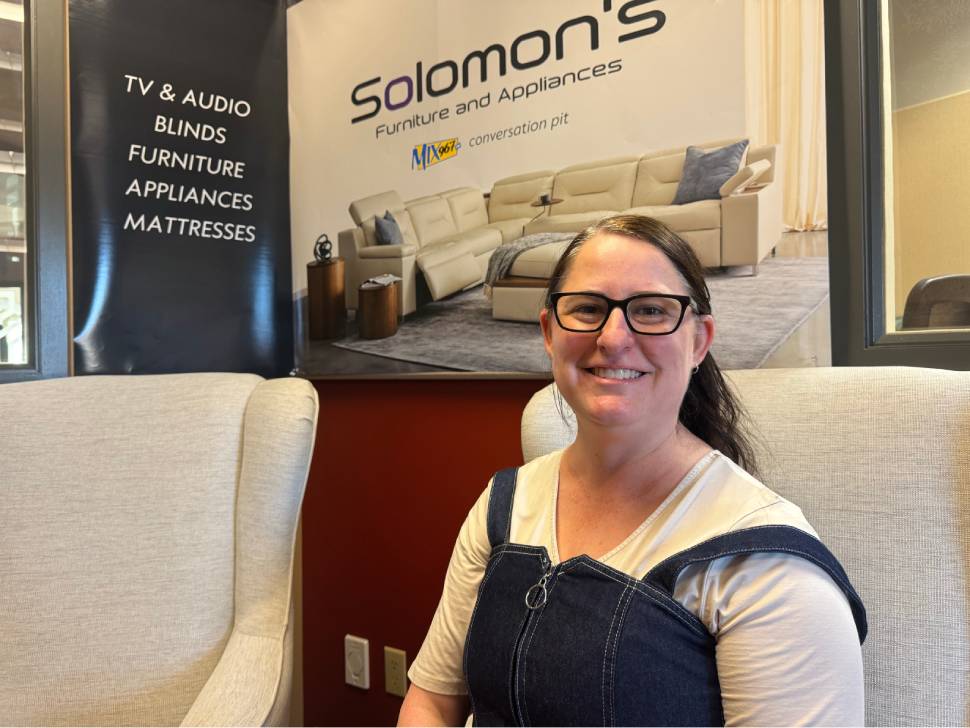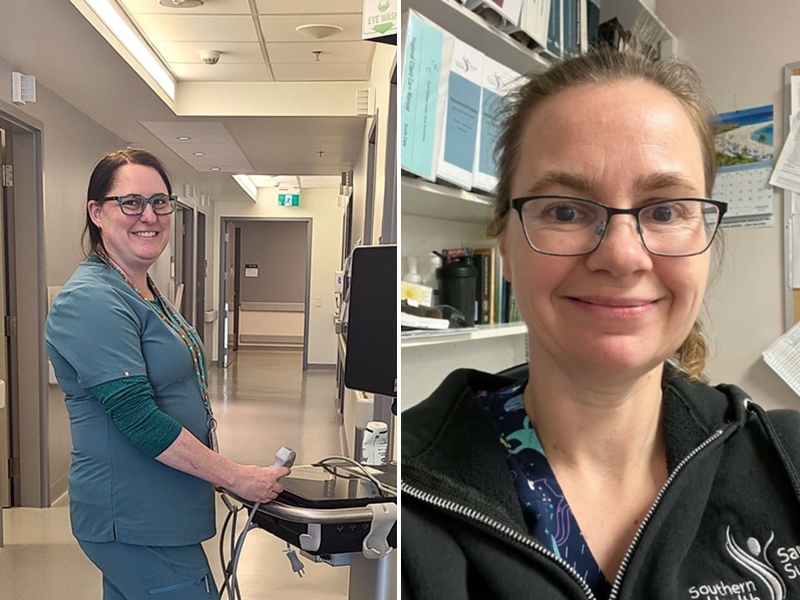For Angela Zwaagstra and Veronique Daoust, the path to a new career didn’t begin in their teens or twenties—it started in their late thirties and mid-forties. The two southeastern Manitoba women are now thriving in careers that once felt out of reach, and they say age and experience have only helped them succeed.
Zwaagstra, 42, is on the verge of becoming a family physician. The Steinbach resident will graduate from the University of Manitoba's medical school on May 15 and has already matched to a residency at the Steinbach Family Medical Clinic.
From stay-at-home mom to future physician
Zwaagstra spent nearly 13 years as a stay-at-home mom before deciding it was time to pursue a career. But medicine wasn’t her first choice.
“I initially applied to be a teacher, and then I went into psychology thinking I’d become a school psychologist,” she says. “Then I happened to read an article about how there was a lack of family physicians across the country, and it kind of made me think, I could do that.”
She applied to medical school and was accepted. Now, four years later, she’s preparing to enter a two-year residency in Steinbach, where she plans to stay long term.
While returning to school was daunting at first, Zwaagstra says her life experience gave her an edge.
“I thought it was going to be a lot harder than it ended up being,” she says. “I was better prepared to be a student. I had a lot more time management from being at home, and I was able to prioritize both the home life and studying.”
Zwaagstra adds that even the overnight shifts in medical school were manageable thanks to the many sleepless nights she spent caring for young children.
Her fourth-year rotations have taken her across the province, but her time at the Steinbach clinic has been a highlight.
“It has been amazing,” she says. “When I come into the room, I introduce myself as a medical student, and sometimes people are unsure. But then I tell them I plan on being a family doctor in Steinbach, and they get excited. They want to know where I fit in the Mennonite game, and usually the next question is, ‘When are you accepting patients?’”
Zwaagstra says that moment will come after her residency is complete.
A class of career-changers
Zwaagstra isn’t alone in her decision to pursue medicine later in life. She says about 10 per cent of her class is over 35 years old, with some students even older than her.
“All the older students are becoming family doctors,” she says. “We’re really interested in the people, and I think that’s because of our life experience.”
Her message to anyone thinking about making a big change: it’s not too late.

“I grew up in foster care. I was a stay-at-home mom. My first round of university wasn’t that great. But when I went back, I was in a different mindset. I had a better idea of how to manage my time and my abilities, and it just worked.”
Zwaagstra says she knows many others in her stage of life who are doing the same—writing books, training as physician assistants, or studying marine biology.
“I encourage everyone who’s thinking, ‘Gosh, I’d like to do that,’ to go ahead and ‘do that,’” she says. “Don’t let your own insecurities hold you back.”
From barn to bedside
Veronique Daoust knows that feeling well. At age 45, she made a bold shift from working in agriculture to becoming a health care aide.
“I was milking cows,” she says. “And one of my coworkers mentioned that I would have been a great doctor. So I looked into nursing.”
Realizing that medical school would be a long and difficult road at her age, Daoust enrolled in a six-month health care aide program and hasn’t looked back. Now 48, she’s been working in Saint-Pierre-Jolys for the past three years, serving the French-speaking community she grew up in.
“It was not as easy as when we were teenagers,” she says. “But you bring your life skills, your experience. You’ve seen things happening, so when you learn, sometimes you have a head start on the younger people.”
She says her practicum experience led directly to a job offer at the same facility where she trained. And the best part of her job? Seeing people recover.
“When somebody comes in and they’re really sick, and then a few weeks later, you see them walk back home—that’s the best feeling ever.”
Daoust says she loves her team, the French-speaking environment, and the drive from her home in Île-des-Chênes.
She encourages others not to let age stop them from starting something new.
“Sometimes it’s nice to start something new, and you’re never too old to learn new skills,” she says. “I love my job.”
A growing trend
Zwaagstra and Daoust are part of a growing number of Canadians choosing to change careers later in life. According to Statistics Canada, mature students—those aged 25 and older—now make up more than one-third of all postsecondary students.
Whether it’s starting medical school at 38 or becoming a health care aide at 45, their stories reflect a broader shift in how Canadians view career development.
-With files from Corny Rempel.
